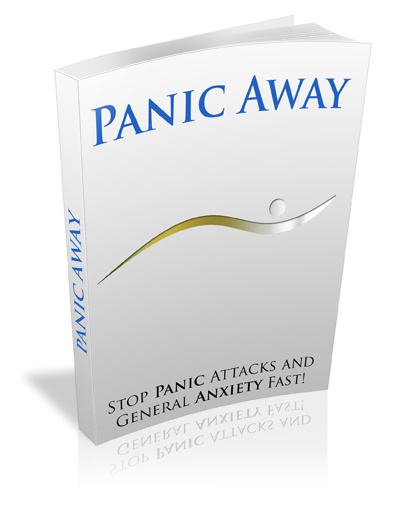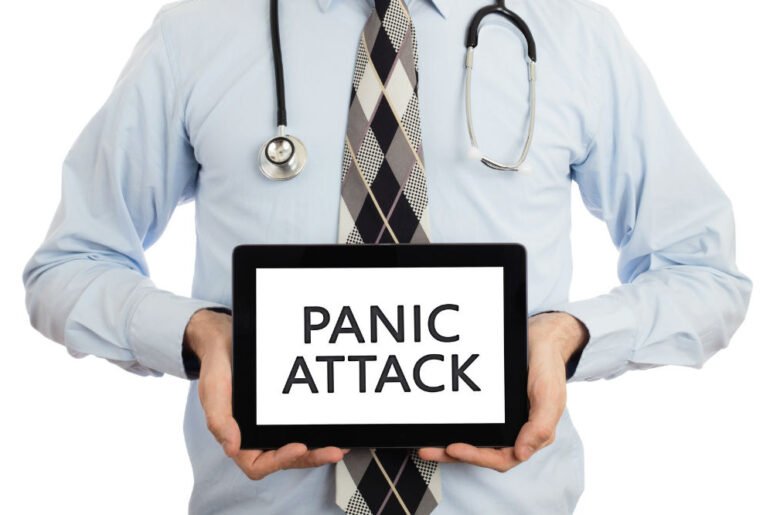The first stage of learning how to prevent panic attacks begins with an understanding of what a panic attack is. Panic or anxiety disorder can be tough to treat since there are no outward signs to register.
There is no standard physical test, such as blood work, that can register if you are prone to panic attacks. Until recently, medical professionals believed panic attacks were primarily physiological.
Our Top Pick For Beating Panic Attacks

Stopping, and preventing, panic attacks is now even easier.
Now we understand, many factors can contribute to the development of panic or anxiety disorders. Family members and friends may find it hard to understand panic attacks. They may think you are overreacting because they do not understand the extreme physical and mental changes that occur during an anxiety attack.
The feeling of a panic attack has been described as standing in a tsunami of anxiety and fear. Your body makes drastic biochemical changes during an anxiety attack. It is so intense that many people claim to feel like they are dying or going insane. Panic attacks are very real, and they should be taken seriously.
Panic attacks did not receive official medical recognition until 1980 when the development of the DSM-III (Diagnostic and Statistical Manual) gave this disorder an official title. This manual established the overall concept of panic disorder. A panic attack can be a once in a lifetime occurrence, but for many people, they are a reoccurring threat to their health.
Females suffer from panic attacks at twice the rate of men, with 7.1% of all females experiencing at least one panic attack in their lifetime. If you compare this to the percentage of men who suffer from anxiety attacks, 2.7%, you can see that women are far more likely to suffer from anxiety disorders.
Significant amounts of anxiety can be disabling. A panic attack can have a severe effect on an individual’s behavior, causing them to become anti-social and overly tensed. Panic attacks cause nausea and dizziness, shortness of breath, and an increased body temperature.
Some individuals will experience chest pains very similar to a heart attack. Panic attacks also create chemical imbalances in your body that can make you feel depressed and overwhelmed. In some cases, people have claimed to go temporarily insane.
A panic attack can occur without instigation, but in most cases, there are specific personal scenarios that proceed attacks. These can include public speaking, crossing a bridge, or even taking a test.
Anything that causes you to feel anxiety can trigger an attack. Attacks do not necessarily need a trigger to initiate. You can have a panic attack even while you are sleeping.
Certain medical conditions can contribute to the frequency at which you experience panic attacks. If you suffer from medical conditions such as low blood sugar, mitral valve prolapse, or hypoglycemia you are more likely to experience reoccurring panic attacks.
All of these factors combine to create a compelling argument for panic attack prevention. Below are some helpful tips to prevent panic attacks:
Avoid smoking and caffeine. Both of these drugs provoke panic attacks. Tobacco use and caffeine raise your blood pressure. By increasing your blood pressure, you are stressing your body out. Your body will have to work twice as hard to keep your blood temperature lower. These conditions provoke panic attacks.
Breath control is one of the most efficient ways to prevent panic attacks. By not allowing your breathing rate to increase, you reduce your blood pressure. This control keeps your body relaxed and at an acceptable blood pressure. Breathing exercises teach you how to keep your mind and body calm. This coping skill can be useful when you feel your anxiety rising.
Meditation is the best way to cure yourself of panic attacks. There are different types of meditation to help you train your mind to calm down. When you meditate, you increase your body’s ability to relax. This relaxation response can counteract any stress you may encounter.
Meditation markedly improves your health and happiness. It is also great for your nervous system. This form of relaxation also increases your circulation, while reducing your blood pressure. Taking ten minutes a day to meditate reduces the chances of you ever having a panic attack.
Panic attacks are becoming more common because of our increasingly busy lifestyles. Many of us are dealing with constant distractions such as cell phones and social media. Learning how to prevent a panic attack can help you to live a healthier and happier life. Once you learn how to keep calm, you will master the ability to counteract panic attacks.



